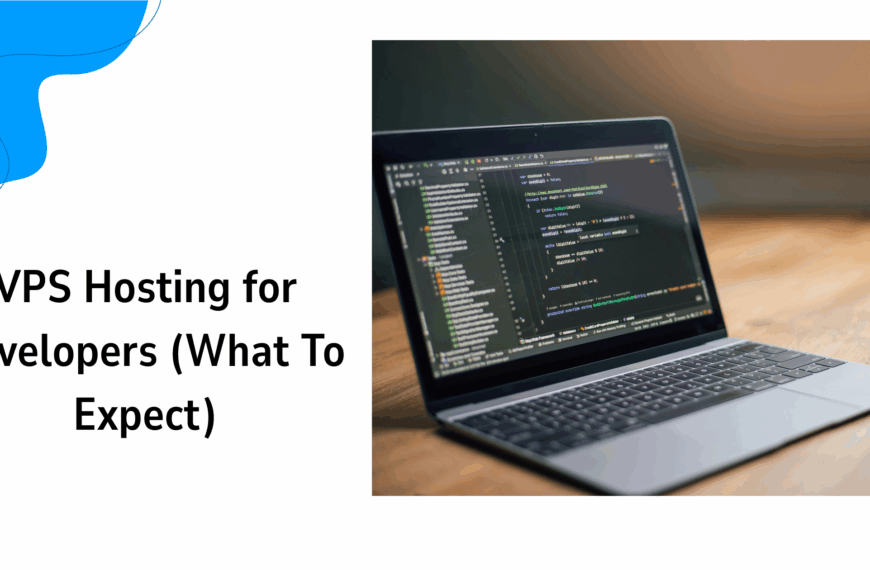Are you trying to use Virtual Private Server (VPS) for forex trading? Let me show you how!
First and foremost, it’s important to acknowledge that using a VPS for forex trading can offer traders several advantages.
These include enhanced reliability, speed, and security.
In this article, we will explore how to use VPS for forex trading, providing valuable insights and practical guidance for traders, especially in South Africa.
Whether you are a seasoned trader or just starting, understanding the benefits and the process of utilizing a VPS can significantly improve your trading experience and outcomes.
Table of Contents
Understanding VPS
A virtual private server (VPS) is a virtual machine that provides virtualized server resources on a physical server, offering greater control and customization than shared hosting.
Think of a VPS like having your own private space in a big apartment building.
The building is the physical server, and your private space is a virtual environment, separate from others.
This gives you dedicated resources and more control over how your space is set up, kind of like having your mini-server within the larger one.
It’s different from shared hosting, where everyone shares the same resources in the building, potentially leading to less control over your specific space.
Let’s explore the basic functions and benefits of using VPS.
Basic Functions of VPS
Isolated Environment: A VPS acts as an isolated environment on a physical server, providing dedicated resources for the user.
Virtualization Technology: It uses virtualization technology to split a single physical machine into multiple private servers.
Differentiating VPS from Traditional Hosting
VPS hosting sits between shared hosting and dedicated hosting, providing a defined amount of resources allocated to the VPS user.
It offers many advantages of dedicated hosting for a more affordable price, including dedicated server space, enhanced security, and root access control.
Benefits of Using VPS for Forex Trading
Reliability and Uptime: VPS hosting offers reliable uptime, which is crucial for uninterrupted forex trading activities.
Enhanced Security: VPS provides top-notch security features, ensuring the safety of sensitive forex trading data.
Remote Access and Flexibility: VPS allows for remote access and flexibility, enabling forex traders to manage their trading activities from anywhere.
Choosing the Right VPS Provider
Choosing a reputable VPS provider is crucial for ensuring optimal performance, security, and reliability of your virtual server.
A reliable provider can offer better support, uptime, and overall service.
On the other hand, a subpar provider can lead to various issues and potential reputational damage.
Factors to Consider When Choosing a VPS Provider
Server Location and Latency: Consider the provider’s server locations and latency to minimize delays in data transmission.
Resources and Scalability: Evaluate the resources offered and the ability to scale your VPS based on your needs easily.
Customer Support: Assess the quality of customer support, including response time and expertise in handling VPS-related issues.
Cost Considerations: Balance the cost of the VPS plans with the offered features, performance, and reliability.
It’s essential to prioritize performance, ease of use, support, and other relevant factors when selecting a VPS provider to ensure smooth web administration and optimal website performance.
Setting Up a VPS for Forex Trading
To set up a VPS for Forex trading, you need to follow these steps:
Step 1: Registering and Choosing a Suitable VPS Plan
Choose a reputable VPS provider that offers VPS plans suitable for Forex trading.
Some reputable VPS providers with plans for Forex trading in South Africa include:
1. Truehost.Africa: They offer some of the best Forex VPS services tailored for traders in South Africa.
2. Cloudzy: Known for its VPS service, which is considered one of the top Forex VPS services, and is available at a reasonable price.
3. AvaTrade: They provide virtual private server hosting for Forex traders, allowing the running of Expert Advisors around the clock during trading hours.
4. ScalaHosting: This provider is recognized for offering VPS for trading Forex, utilizing cloud-based servers.
After choosing a VPS provider, register and select a VPS plan that meets your requirements in terms of resources, location, and cost.
Read also: Cheap Forex VPS in South Africa: #6 Top Providers
Step 2: Installing a Trading Platform on the VPS
Connect to your VPS using Remote Desktop Protocol (RDP) or other methods.
Install your preferred trading platform, such as MetaTrader 4 (MT4) or MetaTrader 5 (MT5), on the VPS.
Step 3: Configuring the VPS for Optimal Performance
Adjust resource allocations, such as CPU, RAM, and storage, to optimize VPS performance.
Install necessary software and tools, such as expert advisors (EAs) and plugins, to enhance trading capabilities.
Set up security measures, such as firewalls and antivirus software, to protect sensitive trading data.
Remember to choose a VPS provider that offers reliable uptime, low latency, and excellent customer support to ensure optimal VPS performance for Forex trading.
Connecting to VPS from South Africa
To connect to a VPS from South Africa, you need to ensure a stable internet connection and utilize remote desktop applications.
Here are the steps to follow:
Step 1: Ensuring a Stable Internet Connection
Choose a reliable internet service provider (ISP) that offers stable and fast internet connectivity.
Ensure that your internet connection meets the minimum requirements for VPS connectivity, such as bandwidth and latency.
Step 2: Utilizing Remote Desktop Applications
Connect to your VPS using Remote Desktop Protocol (RDP) or other remote desktop applications.
Enter your VPS IP address, username, and password to establish a connection.
Configure the remote desktop settings, such as display resolution and sound, to optimize the remote desktop experience.
Step 3: Testing the Connection and Troubleshooting Common Issues
Test the VPS connection to ensure that it’s stable and responsive.
Troubleshoot common issues, such as connection errors and latency, by checking the internet connection, remote desktop settings, and VPS configuration.
In addition, it’s important to choose a reputable VPS provider that has server locations near South Africa to minimize latency and ensure optimal VPS performance.
Tips for Best Practices for Forex Trading on VPS
1. Implementing Risk Management Strategies
It’s important to implement risk management strategies to protect your capital and minimize potential losses while trading on a Forex VPS.
2. Regularly Monitoring Trading Activities
Continuous monitoring of your trading activities is essential to stay informed about market changes and to make timely, well-informed trading decisions.
3. Keeping Software and Security Measures Updated
Maintaining up-to-date software and security measures on your Forex VPS is crucial for optimal performance and safeguarding sensitive trading data.
4. Backing Up Important Data and Configurations
Regularly backing up important trading data and configurations is a prudent practice to ensure that you can recover from any unexpected issues or failures.
Henceforth, by adhering to these best practices, you can enhance your trading experience, minimize risks, and optimize the performance of your VPS for Forex trading.
Overcoming Challenges and Common Concerns
Some of the potential challenges and common concerns when using VPS for Forex trading in South Africa include latency issues, unexpected downtimes, and data privacy and security compliance.
However, VPS providers offer solutions to these challenges, such as providing low latency connections, offering DDoS protection, and ensuring reliable uptime.
Therefore, it’s important to choose a reputable VPS provider that offers reliable uptime, low latency, and excellent customer support to ensure optimal VPS performance.
Also, remember to implement the above-mentioned best practices.
Overall, VPS hosting in South Africa offers reliable and efficient hosting solutions for businesses seeking to unlock their digital potential.
Conclusion
Generally, using a VPS for Forex trading offers several advantages, including faster execution speed, continuous uptime, and reliable performance.
Traders in South Africa can benefit from using a VPS for Forex trading by executing trades faster than their competitors and reacting quickly to market changes.
Additionally, it helps in minimizing potential losses through effective risk management strategies.
Choosing a reputable VPS provider is important to ensure optimal VPS performance.
The future of Forex trading with advanced technologies such as VPS is promising, and traders can expect to see continued improvements in trading efficiency and performance.
If you are a Forex trader, especially in South Africa, consider using a VPS for enhanced trading experiences and to stay ahead of the competition.
 Web Hosting
Web Hosting Windows HostingBuilt for Windows apps and websites – stability, speed and flexibility
Windows HostingBuilt for Windows apps and websites – stability, speed and flexibility Reseller HostingLaunch a hosting business without technical skills or expensive infrastructure
Reseller HostingLaunch a hosting business without technical skills or expensive infrastructure Affiliate ProgramRefer customers and earn commissions from sales across our platform
Affiliate ProgramRefer customers and earn commissions from sales across our platform Domain SearchFind and secure a domain name in seconds with our quick lookup tool
Domain SearchFind and secure a domain name in seconds with our quick lookup tool CO ZA Domains
CO ZA Domains All DomainsExplore domain names from over 324 TLDs globally – all in one place
All DomainsExplore domain names from over 324 TLDs globally – all in one place Free Whois Lookup Tool South Africa
Free Whois Lookup Tool South Africa VPS
VPS SSLs
SSLs









